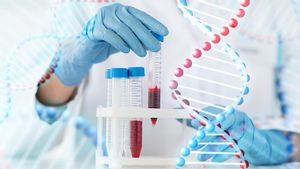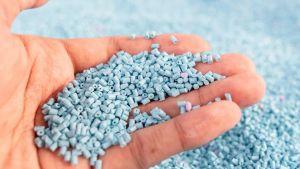YOGYAKARTA Calcium and vitamin D are two related nutrients. Calcium is a nutrient that the body needs while vitamin D is a prohormon that helps the body absorb calcium.
In bones and teeth, it contains 99 calcium. This can be obtained from foods that contain high calcium, or by taking supplements. While vitamin D, it is enough to get enough sunlight so that the body produces vitamin D.
Calcium is important for bone development and growth in children. In adults, calcium is responsible for maintaining bone strength. In addition to its role in bone, calcium also helps muscle contractions, reported by Medical News Today, Tuesday, August 30. The way it works, when signals are received by muscles, calcium will be released and help contract. When calcium leaves the muscles, the muscles will relax. The benefits of calcium also play a role in the blood clot process.
According to the National Institutes of Health (NIH), the recommended daily amount of calcium based on age groups is as follows:
In addition to paying attention to the amount of calcium that is sufficient to get maximum benefits, vitamin D also has a role in bone health. These two nutrients interact with each other, because vitamin D regulates calcium in the blood. Without vitamin D, the kidneys will emit too much calcium.
Another role of vitamin D, is to reduce the allergic response and protect the body against certain types of cancer, including colorektal and breast cancer. In more detail, vitamin D has the benefits for:
According to NIH, the recommended daily amount of vitamin D based on age groups is:
In addition to its important role in bone health, calcium can also reduce the risks associated with high blood pressure. This is evidenced in a study published in the journal Nutrients in 2019. This study shows that calcium has a protective effect on collorextal cancer. For diabetics, vitamin D supports to manage glucose in the blood.
Healthy pregnancy requires vitamin D. A study linking vitamin D and preeclampsia risks and premature birth. The more pregnant women get more vitamin D, the lower the risk is.
But of all the benefits of calcium and vitamin D, too much can pose a bad risk. Such as causing constipation, disrupting the absorption of iron and zinc, the risk of kidney stones, heart disease, and prostate cancer if excess calcium in the body.
If there is too little calcium in the body, it can be recognized by certain symptoms. These include experiencing muscle aches, cramps, tingling, fatigue, insomnia, and experiencing severe PMS.
The English, Chinese, Japanese, Arabic, and French versions are automatically generated by the AI. So there may still be inaccuracies in translating, please always see Indonesian as our main language. (system supported by DigitalSiber.id)













